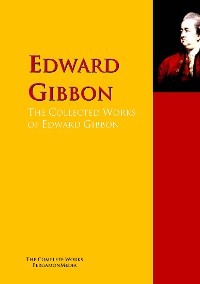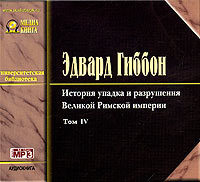 полная версия
полная версияPrivate Letters of Edward Gibbon (1753-1794) Volume 2 (of 2)
By this time you have probably read Necker's book on the Finances. Perhaps for you there is too much French enthusiasm and paint; but in many respects you must have gained a knowledge of his country, and on the whole, you must have been pleased with the picture of a great and benevolent mind. In your attack on Deyverdun for my picture I cannot promise you much success; he seems resolved to maintain his right of possession, and your only chance would be a personal assault. The next summer (how time slips away!) was fixed for your visit to Lausanne. We are prepared at all points to receive you, My lady, and a princess or two, with their train; and if you have a proper contempt for St. Stephen's chappel, you are perfectly free, and at leisure (can you ever be at leisure?) for the summer season. As you are now in a great measure disengaged from my affairs, you may find time to inform me of your proceedings and your projects. At present I do not even know whether you pass the winter at Sheffield-place or in Downing-street. My lady revenges herself of my long silence. Yet I embrace her and the Infants. In a few weeks we expect Miss Bristow and Mrs. Fraser from Nice. Adieu. You have deranged the decline and fall this morning. I have finished my Epistle since dinner, and am now going to a pleasant party and good supper.*
I send you enclosed a promissory note for £500. If you do not borrow the money of Gosling, you may throw it into the fire; if you do, in case of death it will serve as a remembrance. You will find that before and since the receipt of their balance I have drawn this year for £300. The change is most amazingly in my favour, and a banker of credit and substance at Lausanne allows me 4 per Cent. for all the money I leave on his hands.
500.
To his Stepmother
Lausanne, July 15th, 1785.Indeed and indeed, my Dear Madam, I will never go to sleep again; my next letter shall be short and speedy, and I will not always put myself under the shameful necessity of employing the first page in worthless Apologies. On the present occasion I will not excuse myself by saying (what is true enough) that I waited week after week in hopes of hearing from you. As our last letters crossed each other, you might reasonably entertain the same expectation, and thus it is that poor miserable mortals try to provide a decent colour for their own lazyness. You will expect some account of the time of silence, and that account will be short and satisfactory. I am no longer in the illusions of the Honey-moon, when every deformity is concealed, and a smooth deceitful gloss is given to every object.
A YOUNG MAN AT FIFTY.
In the space of two and twenty months, the Climate and Society of Lausanne, my own situation and expence, the character of my companion and of my looser connections of both sexes are perfectly understood. The Climate in these two Winters has shewn itself to all Europe, more strongly perhaps to us, under the most hideous form, severe cold, and a continuance or repetition of snow till the middle of April. In general my health has perfectly sustained the rigour of the season; good spirits, good appetite, good sleep are my habitual state, and though verging towards fifty I still feel myself a young man. I was in hopes that my old Enemy the Gout had given over the attack, but the Villain, with his ally the winter, convinced me of my error, and about the latter end of March I found myself a prisoner in my library and my great chair. I attempted twice to rise, he twice knocked me down again, and kept possession of both my feet and knees longer (I must confess) than he had ever done before. My recovery has been proportionably tedious, and I am hardly yet in possession of my full strength; this admonition calls for some extraordinary care, and without running into sudden extremes, I consult both my reason and my taste by abstaining at night from wine and meat, and contenting myself with a bason of milk.
Such are the drawbacks on the comforts of life, yet I am pleased to think that my gout, though it has adhered somewhat longer than usual, is neither sharp nor frequent, and respectfully confines itself to the lower extremities of the Machine. Of the Country I must not complain, this dry Climate is particularly favourable to gouty constitutions; Dr. Tissot and my own observation inform me that it is rare among the natives, and among my acquaintance I can only name one old Gentleman, who by free living acquired it about the age of three score. My unpleasant and sometimes painful confinement was soothed not only by the mercenary aid of Servants and Physicians (the fee of a visit is about half a crown), but by the assiduous offices of my friends, and instead of the lonesome time an invalid who has not a family must pass amidst the crowds of London, I had the frequent visits of agreable men and women and a party of cards every evening that I chose it.
I do not suppose that real affection, especially to a stranger, is a very plentiful commodity, but here there are much fewer avocations of business or pleasure, and my style of living, my house, my table, &c., make me a man of mark and consequence. With the recovery of my strength, I now return civilities, relax my studies, and visit my acquaintance who are not gone; but so well do I like this habitation, and such is my sedentary disposition, that I have not yet lain from Home, nor gone five miles from Lausanne. You will give me credit when I say, that, though a lover of society, my library is the room to which I am the most attached. I almost hesitate whether I shall tell you that the prospect and furniture are equally agreable, that a reasonable number of my books is arrived from England, and that my whole establishment is formed upon a comfortable yet œconomical plan: in the single articles of house-rent, carriage, servants' wages, clubs, and public places I save between four and five hundred a year. And let me appeal to your reason and spirit whether such a saving be not as real and a much more honourable addition of income, than a pityful, precarious place or pension to be held or lost by the caprice of a Minister or the Revolutions of politics. When I was flattered with a distant hope of a seat at the boards of customs or excise, I was told that I need not work above five days in the week, and that I should sometimes enjoy the respite of Holydays and Vacations. Without any attendance or obligation I have given myself a state of leisure and independence, in which my labour is only employed on litterary pursuits, the objects of my choice and the foundation of my fame.
As every white spot in this life is clouded with a shade of black, I can only lament that this state is so far remote from the best and most faithful of my friends, so faithful and so true that they will enjoy my happiness though they cannot be witnesses or partakers of it. On my side, I think of them much oftener than I write to them, and warmly cherish the hope of an English Journey to them; the time must depend on the completion of my history, and I am sorry to observe that as I advance on my Journey "New Alps on Alps arise;" and I know not when I shall reach the shelter of my Inn.
CHANGES IN ENGLISH POLITICS.
After yourself and Mrs. Porten, Lord and Lady Sheffield are the persons whom I most desire to see. Among my companions of the World are undoubtedly several whom I regard and of whose good wishes I am persuaded; yet those slighter tyes are insensibly relaxed by the distance of time and place, by the interposition of new objects. My political connections have undergone such astonishing changes, a new Parliament, a new Administration, Patriots whom I left Ministers, Ministers whom I left Boys, the whole Map of the Country so totally altered, that I sometimes imagine I have been ten years absent from England. That incessant hurry of Politicks was indeed one of the things which disgusted the most, and there is nothing pleases me so much in this country as to enjoy all the blessings of a Good Government without ever talking or thinking of our Governors. In my domestic Government a great though not unexpected Revolution has happened. Caplen, unable to accustom himself to the language or manners of this country, resigned his employments and returned to England the beginning of last winter. You may easily conceive my loss and apprehension, and you will rejoyce in my good fortune that I was able to fill his place with no unworthy successor; a servant of this country, but who had lived with a Lady at Paris till her death – a man of substance and reputation, and who on the tryal of some months appears to deserve my confidence and good opinion. We are already thoroughly accustomed to each other. Adieu. My Dear Madam, may our correspondence be more frequent, and may I find you on my return in the possession of every blessing.
Most truly yours,E. G.501.
To Lord Sheffield
Lausanne, September 5th, 1785.*Extract from a weekly English paper, September 5th, 1785. – "It is reported, but we hope without foundation, that the celebrated Mr. Gibbon, who had retired to Lausanne in Switzerland to finish his valuable history, lately died in that city."
The hope of the News writer is very handsome and obliging to the historian; yet there are several weighty reasons which would incline me to believe that the intelligence may be true. Primo, It must one day be true; and therefore may very probably be so at present. Secundo, We may always depend on the impartiality, accuracy, and veracity of an English newspaper. Tertio, which is indeed the strongest argument, we are credibly informed that for a long time past the said celebrated historian has not written to any of his friends in England; and as that respectable personnage had always the reputation of a most exact and regular correspondent, it may be fairly concluded from his silence, that he either is, or ought to be, dead. The only objection that I can foresee, is the assurance that Mr. G – himself read the article as he was eating his breakfast, and laughed very heartily at the mistake of his brother historian; but as he might be desirous of concealing that unpleasant event, we shall not insist on his apparent health and spirits, which might be affected by that subtle politician. He affirms, however, not only that he is alive, and was so on the fifth of September, but that his head, his heart, his stomach, are in the most perfect state, and that the Climate of Lausanne has been congenial both to his mind and body. He confesses, indeed, that after the last severe winter, the Gout, his old enemy, from whom he hoped to have escaped, pursued him to his retreat among the mountains of Helvetia, and that the siege was long, though more languid than in his precedent attacks; after some exercise of patience he began to creep, and gradually to walk; and though he can neither run, nor fly, nor dance, he supports himself with grace and firmness on his two legs, and would willingly kick the impertinent Gazetteer; impertinent enough, though more easily to be forgiven than the insolent Courier du Bas Rhin, who about three years ago amused himself and his readers with a fictitious Epistle from Mr. Gibbon to Dr. Robertson.
A CURIOUS QUESTION OF PHILOSOPHY.
Perhaps now you think, Irish Baron, that I shall apologize in humble style for my silence and neglect. But, on the contrary, I do assure you that I am truly provoked at your Lordship's not condescending to be in a passion. I might really have been dead, I might have been sick; if I were neither dead nor sick, I deserved a volley of curses and reproaches for my infernal laziness, and you have defrauded me of my just dues. Had I been silent till Christmas, till Doomsday, you would never have thought it worth your while to abuse me. "Why, then," (let me ask in your name and language, 'you damned beast'), "did you not write before?" That is indeed a very curious question of natural and moral Philosophy. Certainly I am not lazy; elaborate quartos have proved, and will abundantly prove my diligence. I can write; spare my modesty on that subject. I like to converse with my friends by pen or tongue, and as soon as I can set myself a going, I know no moments that run off more pleasantly. I am so well convinced of that truth, and so much ashamed of forcing people that I love to forget me, that I have now resolved to set apart the first hour of each day for the discharge of my obligations; beginning comme de raison, with yourself, and regularly proceeding to Lord Loughborough and the rest. May Heaven give me strength and grace to accomplish this laudable intention! Amen.
Certainly (yet I do not know whether it be so certain) I should write much oftener to you, if we were not linked in business, and if my business had not always been of the unpleasant and mortifying kind. Even now I shove the ugly monster to the end of this epistle, and will confine him to a page by himself, that he may not infect the purer air of our correspondence. Of my situation here I have little new to say, except a very comfortable and singular truth, that my passion for my wife or mistress (Fanny Lausanne) is not palled by satiety and possession of two years. I have seen her in all seasons and in all humours, and though she is not without faults, they are infinitely over-balanced by her good qualities. Her face is not handsome, but her person, and every thing about her, has admirable grace and beauty: she is of a very chearful, sociable temper; without much learning, she is endowed with taste and good sense; and though not rich, the simplicity of her education makes her a very good economist; she is forbid by her parents to wear any expensive finery; and though her limbs are not much calculated for walking, she has not yet asked me to keep her a Coach.
Last spring (not to wear the metaphor to rags) I saw Lausanne in a new light, during my long fit of the Gout; and must boldly declare, that either in health or sickness I find it far more comfortable than your huge metropolis. In London my confinement was sad and solitary; the many forgot my existence when they saw me no longer at Brookes's; and the few, who sometimes cast a thought or an eye on their friend, were detained by business or pleasure, the distance of the way, or the hours of the house of commons; and I was proud and happy if I could prevail on Elmsley to enliven the dullness of the Evening. Here the objects are nearer, and more distinct, and I myself am an object of much larger magnitude. People are not kinder, but they are more idle, and it must be confessed that, of all nations on the globe, the English are the least attentive to the old and infirm; I do not mean in acts of charity, but in the offices of civil life. During three months I have had round my chair a succession of agreeable men and women, who came with a smile, and vanished at a nod; and as soon as it was agreeable I had a constant party at cards, which was sometimes dismissed to their respective homes, and sometimes detained by Deyverdun to supper, without the least trouble or inconvenience to myself. In a word, my plan has most compleatly answered; and I solemnly protest, after two years' tryal, that I have never in a single moment repented of my transmigration.
HIS COUNTRYMEN AT LAUSANNE.
The only disagreeable circumstance is the encrease of a race of animals with which this country has been long infested, and who are said to come from an island in the Northern Ocean. I am told, but it seems incredible, that upwards of 40,000 English, masters and servants, are now absent on the continent; and I am sure we have our full proportion, both in town and country, from the month of June to that of October. The occupations of the Closet, indifferent health, want of horses, in some measure plead my excuse; yet I do too much to please myself, and probably too little to satisfy my Countrymen. What is still more unlucky is, that a part of the Colony of this present year are really good company, people one knows, &c.; the Astons,99 Hales, Hampdens, Trevors,100 Lady Clarges101 and Miss Carter (her Sappho), Lord Northington,102 &c. I have seen Trevor several times, who talks of you, and seems to be a more exact correspondent than myself. His wife is much improved by her diplomatic life, and shines in every company, as a woman of fashion and elegance. But those who have repaid me for the rest were Lord and Lady Spencer.103 I saw them almost every day, at my house or their own, during their stay of a month; for they were hastening to Italy, that they might return to London next February. He is a valuable man, and where he is familiar, a pleasant Companion; she a charming woman, who, with sense and spirit, has the simplicity and playfulness of a child. You are not ignorant of her talents, of which she has left me an agreable specimen, a drawing of the Historic muse, sitting in a thoughtful posture to compose.
So much of self and Co. Let us now talk a little of your house and your two Countries. Does my Lady ever join in the abuse which I have merited from you? Is she satisfied with her own behaviour, her unpardonable silence, to one of the prettiest, most obliging, most entertaining, most &c. Epistles that ever was penned since the Epistles of Paul of Tarsus? Will she not mew one word of reply? I want some account of her spirits, health, amusements, of the womanly accomplishments of Maria, and the opening graces of Louisa: of yourself I wish to have some of those details which she is much more likely to transmit. Are you patient in your exclusion from the House? Are you satisfied with legislating with your pen? Do you pass the whole winter in town? Have you resumed the pursuits of farming, &c.? What new connexions, public or private, have you formed? A tour to the Continent would be the best medicine for the shattered nerves of a soldier and politician. By this expression you will perceive that your letter to Deyverdun is received; it landed last post, after I had already written the two first pages of this composition. On the whole, my friend was pleased and flattered: but instead of surrendering or capitulating, he seems to be making preparations for an obstinate defence. He already talks of the right of possession, of the duties of a good Citizen, of a writ ne exeat Regno, and of a vote of the two hundred, that whosoever shall, directly or indirectly, &c., is an Enemy to his Country. Between you be the strife, while I sit with my scales in my hand, like Jupiter on Mount Ida.
SENSE OR NONSENSE OF IRISH PARLIAMENTS.
I begin to view with the same indifference the combat of Achilles Pitt and Hector Fox; for such as it should now seem, must be the comparison of the two Warriors.* Lord Northington, who is firm in his party, assures me that the popularity of the young Minister, and even the opinion of his abilities, have considerably diminished; but he confesses that such, or much greater, diminution will not weaken his influence in the Parliament, and must tend to promote his favour and confidence in a certain place. *At this distance I am much less angry with bills, taxes, and propositions, than I am pleased with Pitt for making a friend and a deserving man happy, for releasing poor Batt from the shackles of the law, and for enhancing the gift of a secure and honourable competency, by the handsome unsolicited manner in which it was conferred. This I understand to be the case, from the unsuspicious evidence of Lord N. and Chief Baron Skinner; and if I can find time (resolution) I will send him a hearty congratulation; if I fail, you may at least communicate my intentions. Of Ireland I know nothing, and while I am Writing the decline of a great Empire, I have not leisure to attend to the affairs of a remote and petty province. I see that your friend Foster104 has been hooted by the Mob, and unanimously chosen Speaker by the House of Commons. How could Pitt expose himself to the disgrace of withdrawing his propositions after a public attempt?105 Have ministers no way of computing beforehand the sense or nonsense of an Irish parliament? I am quite in the dark; your pamphlet, or book, would probably have opened my eyes; but whatever may have been the reason, I give you my word of honour that I have never seen nor heard of it. Here we are much more engaged with Continental politics. In general we hate the emperor,106 as the enemy of peace, without daring to make War. The old Lyon of Prussia107 acts a much more glorious part, as the Champion of public tranquillity, and the independence of the German states.
And now for the bitter and nauseous pill of pecuniary business, upon which I shall be as concise as possible in the two articles of my discourse, land and money.* And concise indeed I may be according to the slender proportion of either that is now left. You sometimes accuse me of not reading or remembering the most important points of your despatches: may I not equally complain that you pass in silence all my enquiries and requests on the subject of Buriton? In the space of two years I have never received a line of intelligence from Hugonin concerning the state of that last and dearest possession. And as far as I can judge from Gosling's confused account, which records only dates and names, a portion, not a very small one, of the rent remains unpaid, or has been sunk in unknown charges and expences. Let me therefore repeat perhaps more clearly what I have already desired.
1. That you would correspond with Hugonin, and obtain from him a correct mercantile account of debtor and creditor of rents and payments for the aforesaid two years.
2. That if there remains any arrears, you would propose and enforce the most vigorous measures for my prompt and entire satisfaction.
3. That as there must be deducted from this year's rents a considerable fine to Magdalen College for Horn, Hugonin at your instigation would cast about to see whether he cannot perceive any extraordinary means of supply in the timber way. A dozen years have now elapsed since the first Cut of the Hanger. May not those underwoods be again ripe for the Axe? You know I consider only present profit, and disregard all future improvements and rural beauty. A beast, you will say. Alas, why do hard circumstances force me to be one?
4. That you would manage, if it can be done without offence or expence, the substitution of Richard Andrews, in the place of Hugonin, a clear-sighted Agent for a blind Gentleman. I fear nothing more is to be expected from Lenborough, but as you seem quiet, I entertain a faint hope that Harris's bond has been discharged from the rent or purchase money. You have done no more than I expected in assuring me that the £500 shall be ready at Goslings', but I should be sorry to distress you, or to lay your generous spirit under any obligations to a purse-proud Cit. If they will readily take your bond, and allow me credit for the sum before the 1st of December for January next, it will be the readiest and most private way. Otherwise I can have recourse to another expedient, of desiring the Darrels either to sell an equivalent part of my short annuity, or, if the funds are too low, to advance me the desideratum on a security which is in their own hands. When I am possessed of the money in one way or another I will take a view of my former credit with Gosling (a small credit, I trow) of this additional supply of my debts, expences, and resources, and I hope I shall be able to discharge at least the remainder of Newton's bill. But I must not impoverish myself too, and I have some thoughts of keeping the rest of my library (if not troublesome to Downing Street) till my return to England.
DELAYS IN HIS HISTORY.
*It is impossible to hate more than I do this odious necessity of owing, borrowing, anticipating; and I look forwards with impatience to the happy period when the supplies will always be raised within the year, with a decent and useful surplus in the treasury. Had it not been for the cursed dissolution of Parliament, such would already have been the case. I now trust to the conclusion of my History, and it will hasten and secure the principal comforts of my life. You will believe I am not lazy; yet I fear the term is somewhat more distant than I thought. My long gout lost me three months in the spring; in every great work unforeseen [obstacles], and difficulties, and delays will arise; and I should be rather sorry than surprized if next autumn was postponed to the ensuing spring. If My Lady (a good creature) should write to Mrs. Porten, she may convey news of my life and health, without saying anything of this possible delay. Adieu. I embrace, &c.*









